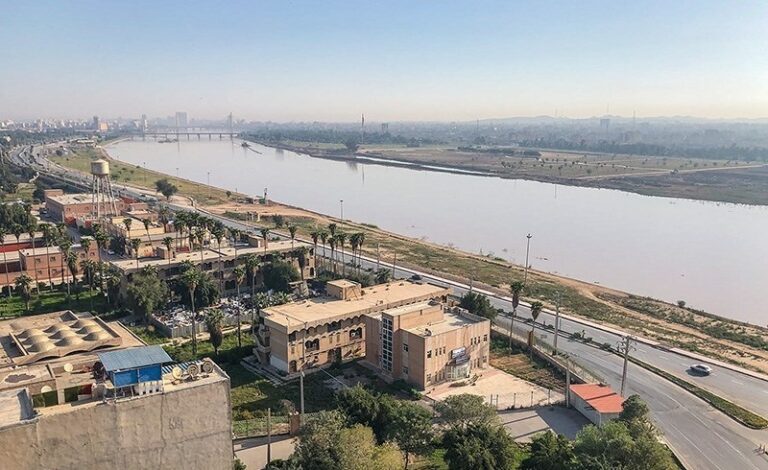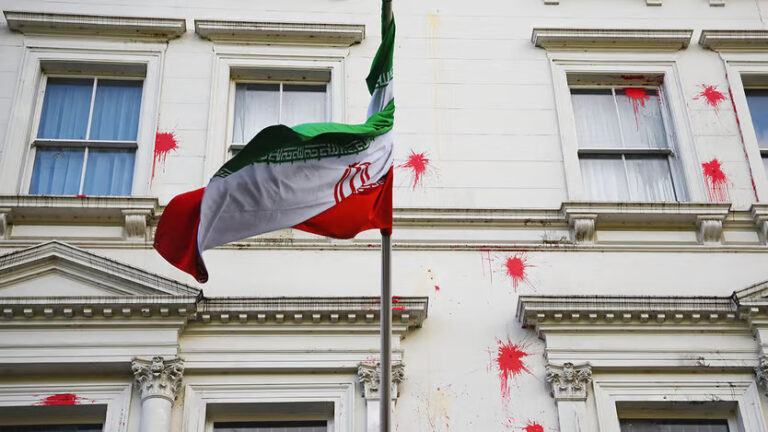ABEER TAYEL, Al Arabiya with Agencies
France has ordered 14 people who served as Libyan diplomats under Colonel Muammar Qaddafi’s regime to
leave the country within two days, the French foreign ministry said on Friday, hours after the Libyan government rejected US plans to unblock its frozen assets and give them to protesters. “France has declared persona non grata 14 Libyan ex-diplomats posted in France,” the ministry said in a statement, indicating that Paris no longer recognized their diplomatic status. “Depending on their case, those concerned have a deadline of 24 to 48 hours to leave French national territory,” the statement said according to Agence-France Presse.
France was the first foreign power to formally recognize the Transitional National Council, the political leadership of the protesters who are battling Colonel Qaddafi’s forces.
Russia, meanwhile, said it was opposed to any ground operation in Libya in line with a United Nations resolution that authorized military action to protect civilians in the North African country, Foreign Minister Sergei Lavrov said, according to Reuters.
The Libyan government had earlier rejected US plans to unblock its frozen assets and give them to protesters fighting Colonel Muammar Qaddafi, saying such a move was “piracy” and would undermine the global financial system.
Washington has already frozen about $30 billion in such assets since the Libyan revolt began in February, but there are legal obstacles to enabling the money to be used.
US Secretary of State Hillary Clinton told anti-Qaddafi countries meeting in Rome that Washington would try to pass legislation to unblock frozen Libyan assets and hand them to the opposition fighters who have seized eastern Libya.
International powers have pledged funds to aid Libyan protesters in their battle to oust Colonel Qaddafi.
“Any use of the frozen assets is like piracy on the high seas,” said Libya Deputy Foreign Minister Khaled Kaim, according to Reuters.
“They (the protesters) are not a legal entity. They are not a country. The country is not divided according to a referendum or to a United Nations resolution,” he told journalists. “This is illegal … If we stay silent about it, I think we will be living in a jungle.”
Mr. Kaim said handing Libyan assets to the protesters would discourage wealthy countries from investing abroad, for fear their cash would be seized and handed to opposition groups at the first sign of domestic unrest.
He said that Libya had more than $140 billion invested abroad and that the Libyan central bank had transferred 700 million Libyan dinars ($571 million) to its Benghazi branch in February to pay for six months of salaries and other expenses.
He condemned pledges by Western and Arab countries opposed to the 68-year-old colonel to set up a fund to help the protesters, who are desperately short of cash, saying the mechanism was illegal and there was no way to monitor the way the money was spent.
“Where was the 700 million spent?” he said. “On arming opposition fighters or dividing among the nine people on the self-appointed council?”
Massive Libyan protests in February—inspired by the revolts that toppled long-time autocrats in Egypt and Tunisia—escalated into war when Colonel Qaddafi’s troops fired on demonstrators and protesters seized several eastern towns.
The move Thursday came as more than 1,000 refugees arrived in the eastern revolt bastion of Benghazi after fleeing the besieged city of Misrata under fire, AFP reported.
Mr. Qaddafi’s forces have tightened the noose on Misrata, killing at least five people on Wednesday, in a more than two-month nationwide revolt that the International Criminal Court said has cost “thousands” of lives.
Misrata, a city of half million people, has been surrounded by Colonel Qaddafi’s forces for the last two months, with intense fighting as the two sides battle for control and as NATO mine-sweepers scour the waters offshore.
Leaders of the revolution against Mr. Qaddafi, meanwhile, said the pledges, made at the Rome meeting were “a good start.”
“It’s a good start,” Mahmoud Jibril, leader of the opposition Transitional National Council (NTC), said after the talks.
Mr. Jibril said the $3 billion figure was in fact “a six-month budget.”
Expressing a degree of impatience over the frozen assets, he added: “This process should be expedited because having this money soon would help us come up with what we call a roadmap to realize our developmental vision,” according to AFP.
Mr. Jibril outlined a political plan that would be enacted if Colonel Qaddafi leaves power in which an interim government would hold a referendum on a new constitution and parliamentary and presidential elections within eight months.
The opposition chief said the NTC would soon contact the United Nations to organize municipal elections imminently in the cities that it already controls as a way of showing its commitment to democratic change in Libya.
The government that would oversee this entire process would be made up of NTC members, technocrats from Colonel Qaddafi’s regime, senior military and intelligence officers and a judge.
Meanwhile, the protesters were left red-faced after they claimed that four more countries—Canada, Denmark, the Netherlands and Spain—had given them diplomatic recognition. Foreign ministries in Copenhagen, The Hague and Madrid quickly denied the claim.
France, Italy, Qatar and Gambia earlier recognized the NTC.
(Abeer Tayel of Al Arabiya can be reached at: abeer.tayel@mbc.net)











+ There are no comments
Add yours